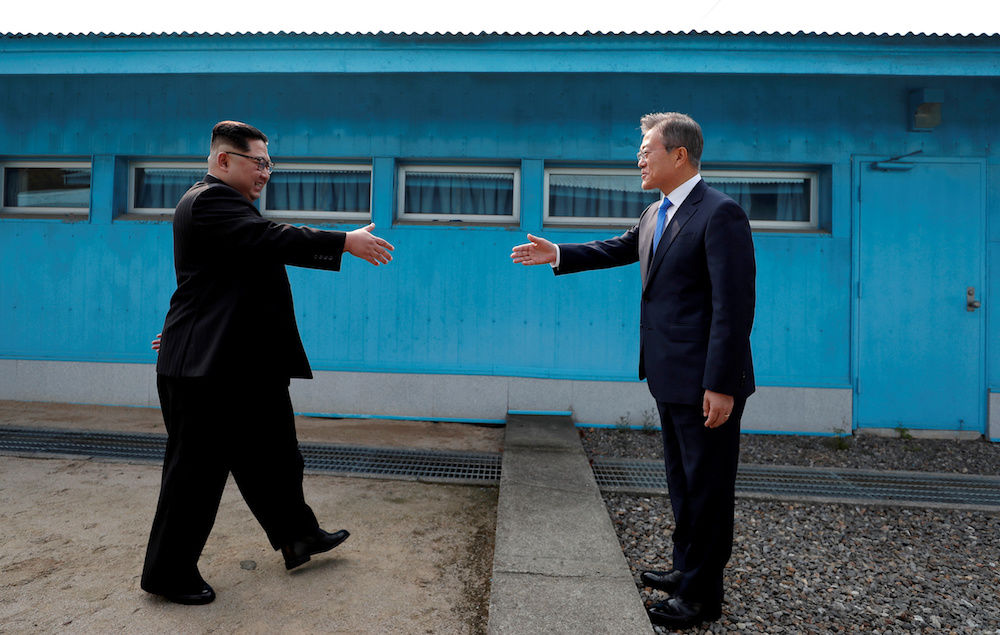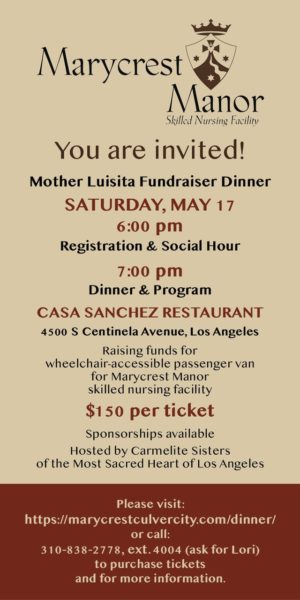On Sunday Pope Francis praised the recent agreement signed by North and South Korean leaders aimed at reconciliation and denuclearization, praying that the peace process on the peninsula would continue undeterred.
“I accompany with prayer the positive success of the Inter-Korean summit last Friday and the courageous commitment assumed by the leaders of the two parts to carry out a path of sincere dialogue for a Korean Peninsula free of nuclear weapons,” the pope said April 29.
On Friday leaders of both and South Korea signed a revolutionary peace agreement aimed at eradicating nuclear weapons and increasing exchanges, visits, and cooperation between the two Koreas in order to promote a sense of unity and the eventual reunion of families separated during the Korean War.
In a historic first, North Korean dictator Kim Jong Un crossed the military demarcation line within the Demilitarized Zone that has divided the Korean peninsula since 1953 to meet with South Korean President Moon Jae-In on southern soil.
Both leaders signed the Panmunjeom Declaration stating that “there will be no more war on the Korean Peninsula and thus a new era of peace has begun.”
In the statement, the leaders agreed to “the common goal of realizing, through complete denuclearization, a nuclear-free Korean Peninsula” and to actively pursue further meetings with the United States, and possibly China, to establish a more permanent peace.
Though some have criticized the accord for lack of a specific plan on denuclearization, Francis prayed that steps toward peace on the peninsula would continue, voicing hope that “a future of peace and more fraternal friendship will not be disappointed, and that collaboration may continue to bring fruits of good for the beloved Korean people and for the entire world.”
The pope spoke during his Sunday Regina Coeli address, which he prays during Easter instead of the Angelus.
In his address, Francis focused on the day's Gospel from John in which Jesus says he is the true vine and his disciples are the branches, which cannot have life unless they remain attached to the vine.
“This relationship is the secret to Christian life,” he said, noting how John in this specific scene uses the word “remain,” which is repeated seven times throughout the passage.
This, he said, means “remaining with the Lord in order to find the courage to go out of ourselves, of our comfort, of our tight and protected spaces, in order to go into the open sea of others' needs and to give a wider breadth to our Christian witness in the world.”
This courage, the pope continued, is born from faith in the Risen Lord and from the certainty that his spirit is accompanying us throughout our lives.
One of the “most mature fruits which springs from communion with Christ” is showing charity toward the other, he said, adding that this means to love one another “with self-denial, until the final consequences, just as Jesus loved us.”
However, this charity “is not the fruit of strategies, it is not born from external solicitations, from social or ideological requests,” Francis said. Rather, it comes from an encounter with Jesus and from remaining with him in that encounter.
Jesus, he said, “is for is the vine from which we absorb the sap, that is, the life needed in order to bring to society a different way of living and spending oneself which puts the last ones first.”
When a person is intimately united to the Lord like the branches are to the vine, only then can they bring the fruits of new life, mercy, justice and peace, which come from the Lord's resurrection, he said.
The saints, he said, were the ones who were able to life the Christian life to the fullest, bearing witness to charity because they were united with the Lord.
However, quoting his new apostolic exhortation Gaudete et Exsultate, Francis stressed that “to be holy does not require being a bishop, a priest or a religious...We are all called to be holy by living our lives with love and by bearing witness in everything we do, wherever we find ourselves.”
“Every activity — work and rest, family and social life, the exercise of political, cultural and economic responsibility — every activity, if it is lived in union with Jesus and with an attitude of love and service, is an occasion for living baptism and evangelic holiness to the full.”
Francis closed his address praying that Mary would teach Christians to remain in Jesus, and to never separate themselves from his love. “We can do nothing without him,” he said, “because our live is the living Christ, present in the Church and in the world.”
After his address, the pope also offered prayer for the 19 people, including two priests, who were killed in a fresh attack on a church in Nigeria's Middle Belt earlier this week.

